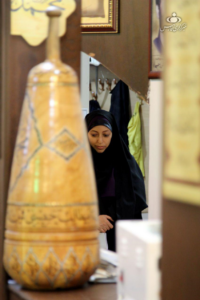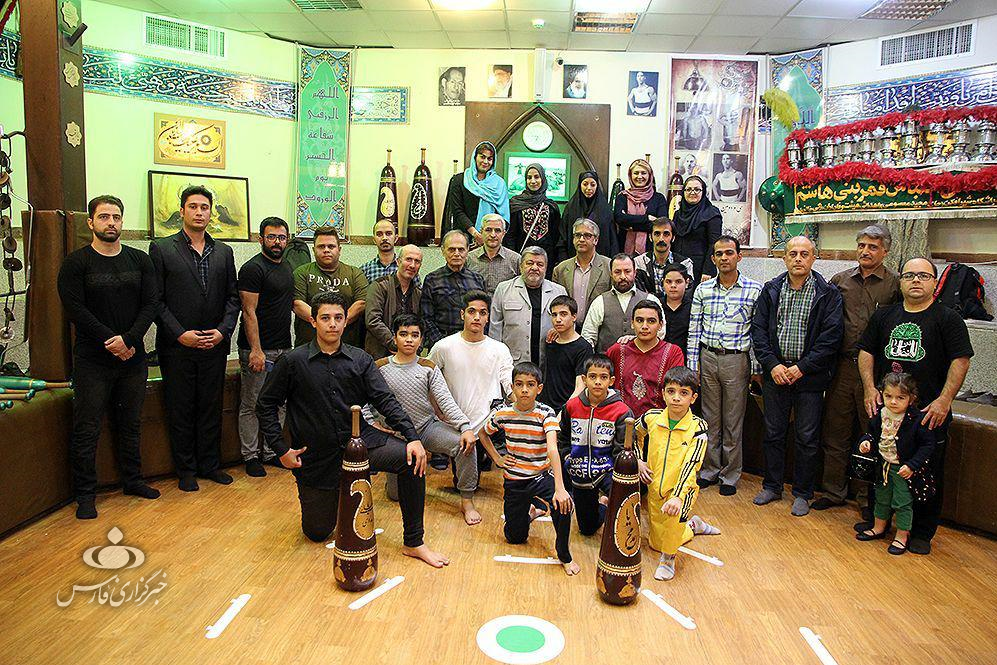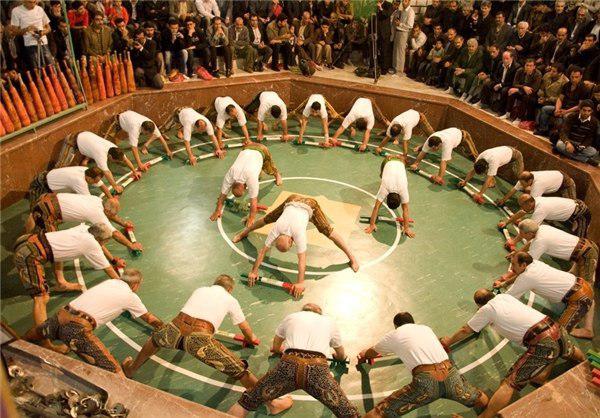Samira Kazemi Fard is the first woman to receive such an honour in the history of Iran’s Pahlevani and Zoorkhaneh Sports.
Samira, born in 1982, has received the third degree badge of Pahlavani although she’s never been into Zoorkhaneh for sports because she believes Pahlevani has its own rituals and rules.
Although Kazemi Fard received the badge from the most famous Pahlevans of the country, she is against the activity of women in wrestling and Zoorkhaneh rituals.

That is why when she enters Zoorkhaneh, all of the athletes stop what they are doing in her honour.
Samira is a real fan of legendary Iranian wrestler, late Pahlevan Gholam-Reza Takhti.
During her 20 years of research, Samira has gotten to know all Pahlevans and all the details of their lives, and this is what distinguishes her from other researchers.
In 2014, after the end of the annual ceremony to commemorate Takhti, she was invited to go to a Zoorkhaneh in Shahr-e Rey, in the capital Tehran.
When she was leaving Zoorkhaneh, renowned Pahlevan Mohammad Mahmoudi stopped exercising in her honour.
“I was very glad to be acclaimed for all my years of efforts. It was a gift that was given to me…. I knew in the history of Zoorkhaneh sports, no woman could win such a badge,” noted Samira in an interview with Fars news agency.
“When Pahlevani and Zoorkhaneh rituals were inscribed by UNESCO, all countries started to perform it without understanding the philosophy of this sport. Zoorkhaneh sports are part of the Muslim rituals and are not known without the name of Imam Ali (AS).”
“Some people do not even know what the Islamic traditions are for entering Zoorkhaneh. Although I am a woman, with the research I have carried out and interviews with athletes I understood this sport is not suitable for women because wrestling and Zoorkhaneh activities will harm them,” she said.

There are some inscriptions from the 7,000-year period, and there are documents available from the 5,000-year period. But from the 2,500-year period, there are some good documents, says Kazemi Fard adding that an encyclopedia is published on the subject in 2,100 pages.
Samira knows all the styles of wrestling and Zoorkhaneh sports and their philosophy. She has also collected most of this information based on interviews with professors, coaches and wrestlers.
“I have composed five books that are waiting to be published, but for the time being I want to publish a book on Pahlevani rituals,” she concluded.
